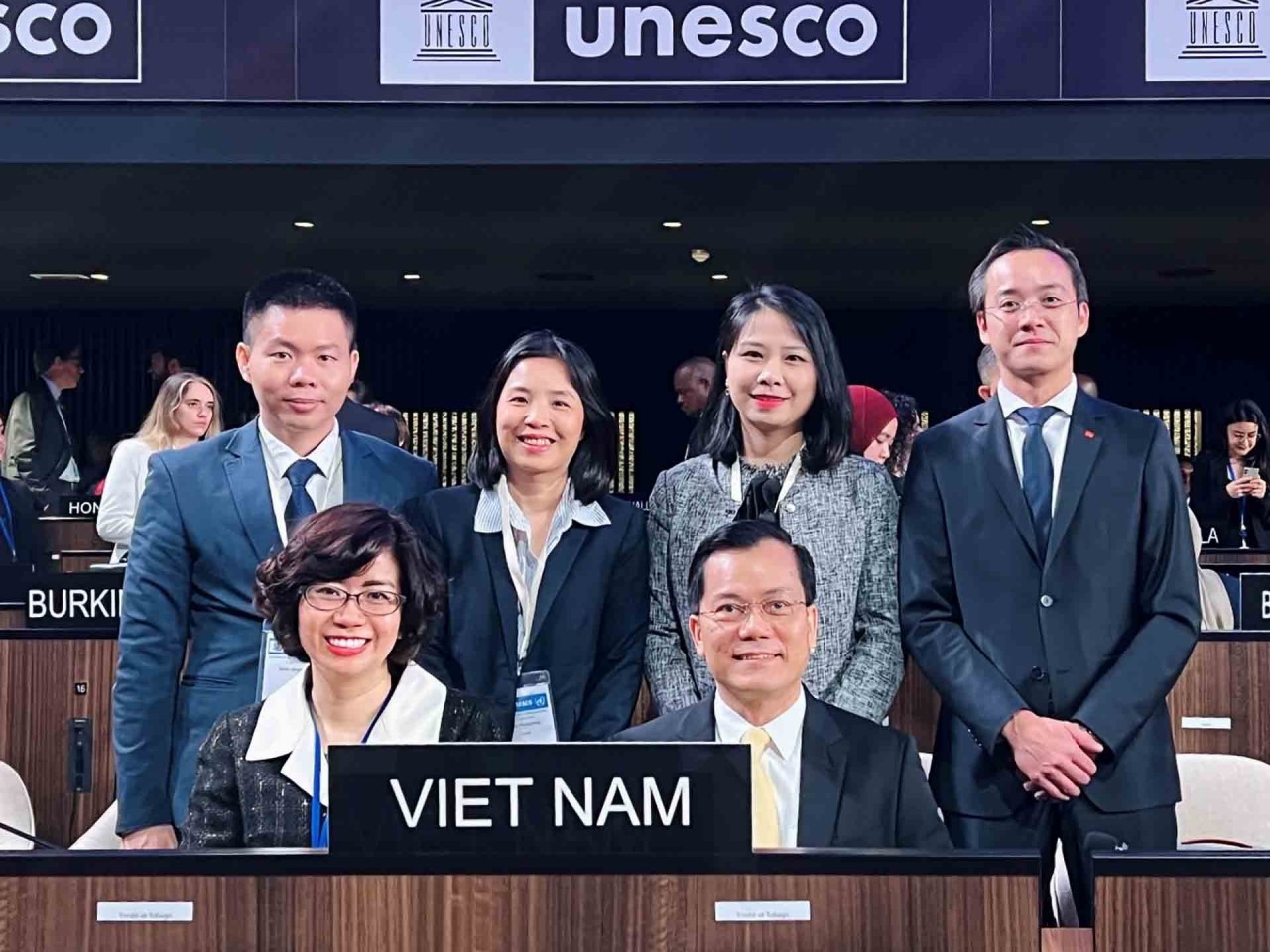
5th ARF Workshop on UNCLOS 1982: Constitution for the Oceans, irreplaceable legal framework
Latest
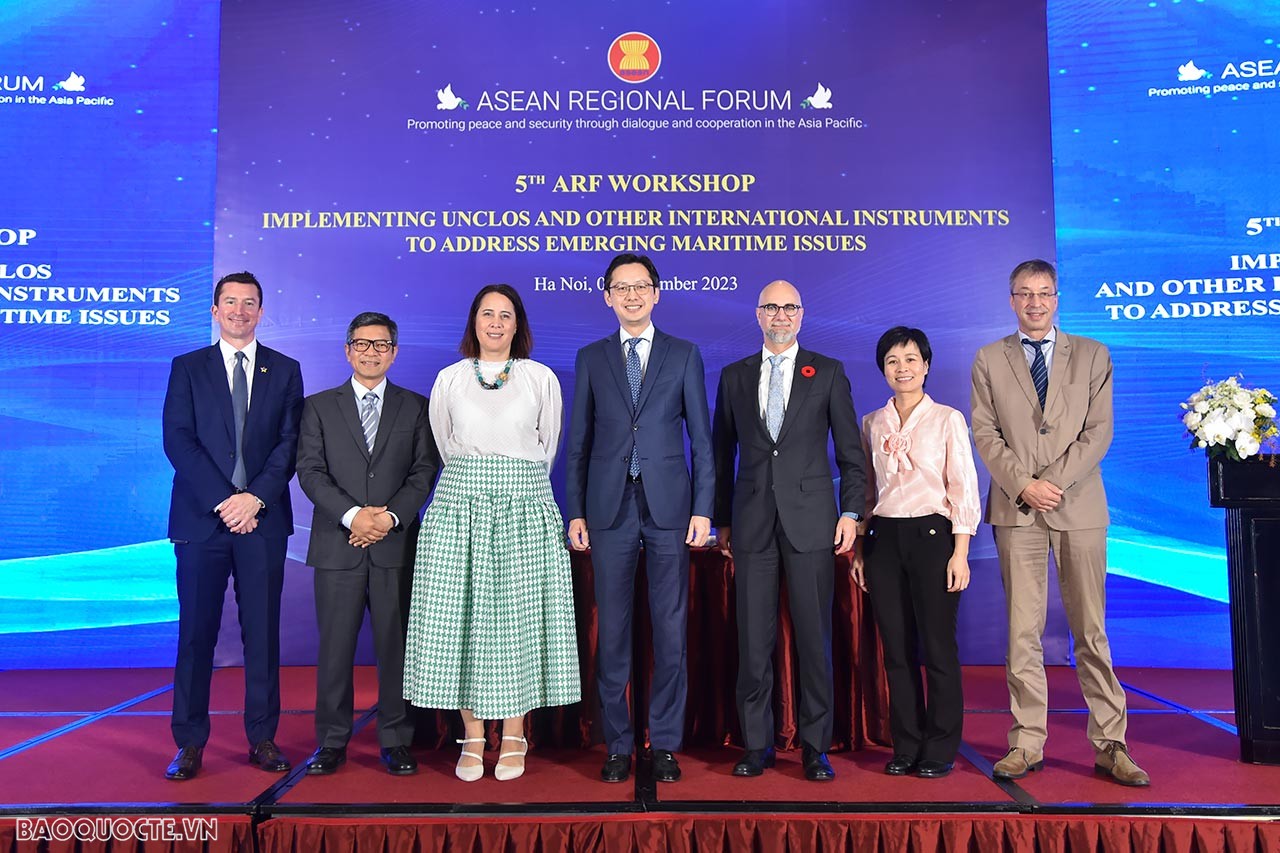 |
| The fifth workshop of the ASEAN Regional Forum (ARF) on implementing the United Nations (UN) Convention on the Law of the Sea 1982 (UNCLOS 1982) and other international instruments to address emerging maritime issues. (Photo: Tuan Anh) |
Following the success of a series of four seminars on the same topic held since 2019 in Hanoi, this workshop attracted many prestigious experts, scholars and officials from ARF member countries to participate in the exchange, discussing ways to cooperate and resolve challenges in marine management in the region, based on the application and implementation of UNCLOS 1982 and related international legal documents.
UNCLOS 1982 - the Constitution for the Oceans
UNCLOS 1982 - the Constitution for the Oceans was especially emphasized by delegates in ensuring peace, security and maritime safety.
Speaking at the opening of the workshop, Deputy Foreign Minister Do Hung Viet emphasized the extremely important role of UNCLOS 1982. "Only by upholding and fully implementing UNCLOS can we cooperate fully and effectively. As have been underlined time and again, the Convention sets out the legal framework within which all activities in the oceans and seas must be carried out. It provides us the framework and a range of tools to handle today’s challenges", Deputy Minister Do Hung Viet affirmed.
On the one hand, territorial disputes, strategic competition, tensions on the ground as well as climate change, sea level rise and unsustainable exploitation of the seas and marine resources place the South China Sea – a strategic and economic sea facing many threats to peace, security and stability, affecting the security and maritime safety of the region.
On the other hand, UNCLOS continues to demonstrate its irreplaceable role in resolving issues and disputes at the seas, serving as a solid foundation for continuing to develop an international legal framework to address emerging challenges.
Evidences for this are important events in the past year such as: completing negotiations on the Conservation and Sustainable use of biodiversity beyond national jurisdiction (BBNJ) or the fact that a number of countries consulted and participated in the process of the International Tribunal for the Law of the Sea (ITLOS) to review and give advice on UNCLOS regulations related to greenhouse gas emissions and climate change, as well as the negotiation process of the Convention on Plastic Waste, including ocean plastic waste.
Mr. Do Hung Viet said that, more than ever, countries can only find solutions to maritime problems in the region through promoting cooperation, by fully respecting and implementing UNCLOS.
The workshop is an opportunity to affirm that UNCLOS 1982 continues to stand the test of time, and is an important basis for countries in the region to increase trust and promote cooperation for peace, security and prosperity; emphasizing that all disputes and issues related to seas and oceans in the region need to be resolved by peaceful means, in accordance with international law, including UNCLOS 1982.
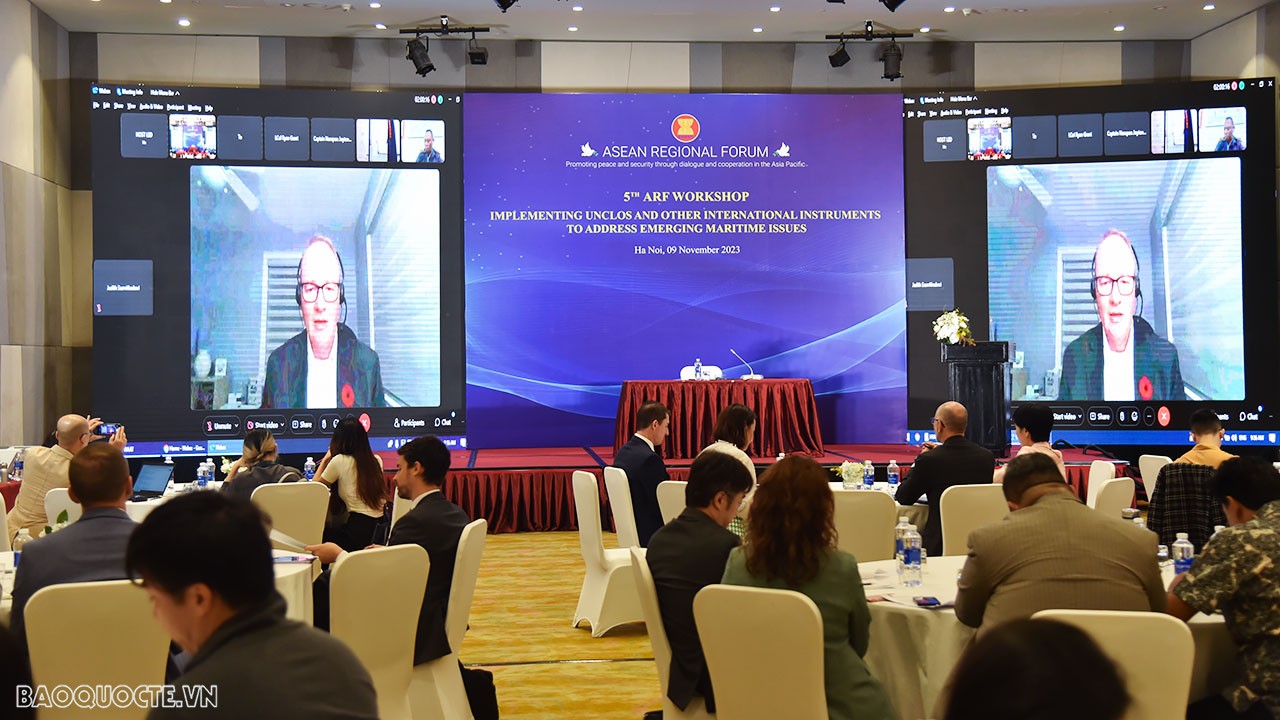 |
| The overview of the Workshop. (Photo: TA) |
Support ASEAN's central role for peace and prosperity
Sharing views with Vietnam, the co-chairs (including the Canadian Ambassador, Australian Deputy Ambassador, New Zealand Ambassador and Deputy Head of the EU Delegation to Vietnam) all emphasized the role and value of UNCLOS and thank the Ministry of Foreign Affairs of Vietnam for hosting this series of seminars.
Canadian Ambassador Shawn Steil expressed concern about developments in the South China Sea as well as new issues constantly arising at sea; encourage international cooperation activities, share experiences and improve capacity in related issues.
According to the Canadian Ambassador, Canada and ASEAN have many common values and ambitions including a shared commitment to promoting maritime security and safety, freedom of navigation and overflight, unimpeded commerce and the peaceful resolution of disputes in accordance with international law.
This common commitment is reflected in the recently established Canada-ASEAN Strategic Partnership, which marks a new era in the ASEAN-Canada relationship and will serve as a catalyst for strengthened cooperation for decades to comes, including through the ARF and other ASEAN-led mechanisms.
For her part, New Zealand Ambassador Tredene Dobson also emphasized the importance of UNCLOS in ensuring common prosperity, security and stability of the Indo - Pacific Ocean region.
“UNCLOS underpins our collective prosperity, security and stability in the Indo-Pacific region, something which we must continue to work to uphold and maintain”, the New Zealand Ambassador emphasized. At the same time, Ambassador Tredene Dobson also said that new multilateral agreements relating to the maritime need to be consistent with UNCLOS, and do not derogate from the overarching rules it provides.
Australian Deputy Ambassador Mark Tattersall expressed that Australia has accompanied the ARF Workshop on UNCLOS for 5 years, with confidence in ASEAN's central role in solving regional issues, especially at sea, emphasizing the need for joint efforts by countries in the region.
Mr. Mark Tattersall emphasized that ASEAN is right to assert that disputes must be resolved peacefully, in accordance with international law, including UNCLOS. Australia is committed to valuing ASEAN centrality and steadfastly supporting the ASEAN Outlook on the Indo-Pacific as well as the ASEAN Maritime Outlook (AMO).
Deputy Head of the EU Delegation to Vietnam emphasized the importance of maritime in global economic development, along with maritime security and safety in the South China Sea, hoping that relevant countries will soon approve the Code of Conduct in the South China Sea (COC) which is practical and effective, in accordance with international law and takes into account the legitimate interests of third parties.
| Within the framework of the Workshop, delegates discussed two main groups of issues, including the adjustment of UNCLOS 1982 and related legal documents, focusing on some sea areas such as high seas and seabed beyond the rights of others national jurisdiction and extended continental shelf; Traditional and emerging challenges in the process of implementing UNCLOS 1982, including UNCLOS regulations on combating climate change and the issue of national responsibility for damage caused to underground communication cables of other countries. Delegates emphasized the value of UNCLOS 1982 over the past 40 years, emphasizing that this is a comprehensive legal framework that all activities at sea must comply with, as well as a basis to promote cooperation in handling maritime disputes, traditional and emerging issues on the seas and oceans in the region. |
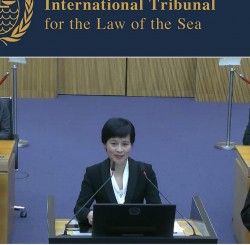
| Vietnam emphasises importance of UNCLOS in marine environmental protection: MOFA Official WVR/VNA- On September 20, Le Duc Hanh, Director General of the Department of International Law and Treaties at the Ministry of Foreign Affairs, stressed that ... |
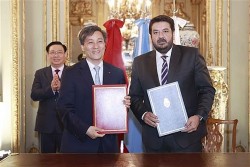
| President ratified Vietnam-Argentina Agreement on Mutual Legal Assistance in Criminal Matters WVR/VNA - President Vo Van Thuong has signed a decision ratifying the Agreement on Mutual Legal Assistance in Criminal Matters between Vietnam and Argentina, as ... |
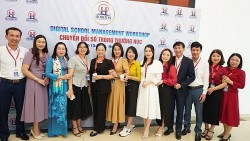
| Workshop promotes digital school management Digital transformation has been and will be a mandatory requirement for educational institutions to ensure progress, training quality, and all training organisation and management activities ... |

| Legal database on military, national defence makes debut in Hanoi: Defence Ministry WVR/VNA - The Ministry of National Defence launched a database of legal documents on military and national defence at a ceremony in Hanoi on November ... |
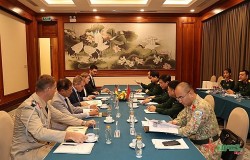
| Vietnam, Germany Defence Ministries discuss measures to intensify legal affairs collaboration WVR/VNA - On November 8, in Hanoi, Representatives from the Vietnamese Ministry of National Defence’s Department of Legal Affairs and the German Ministry of Defence’s ... |






